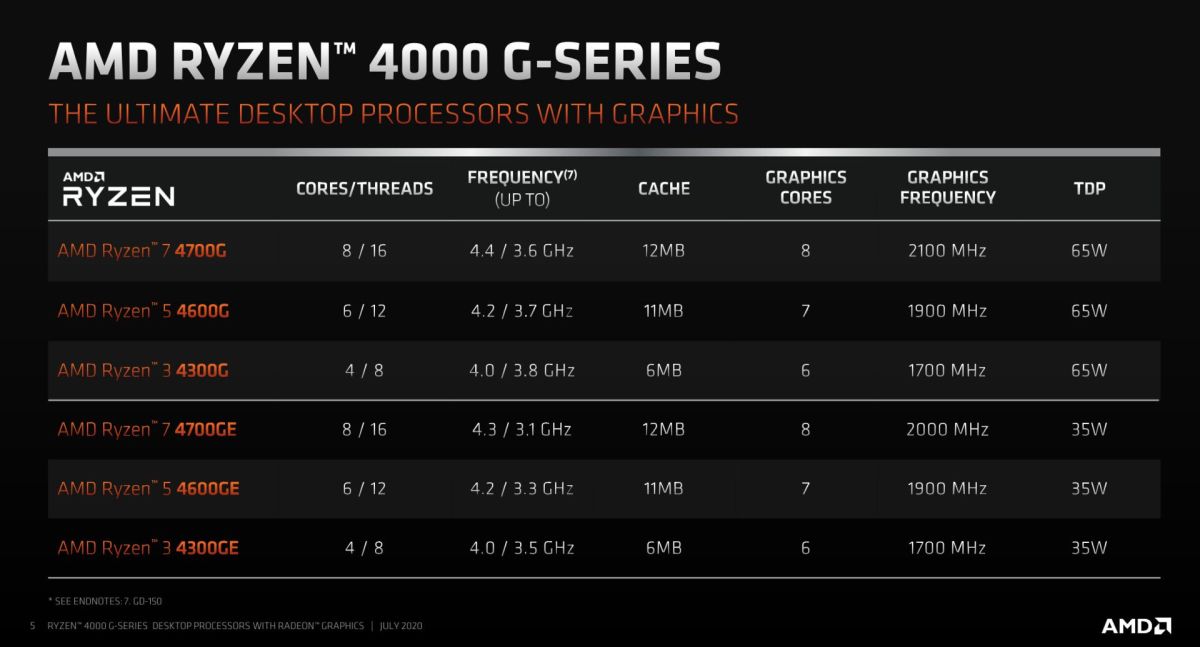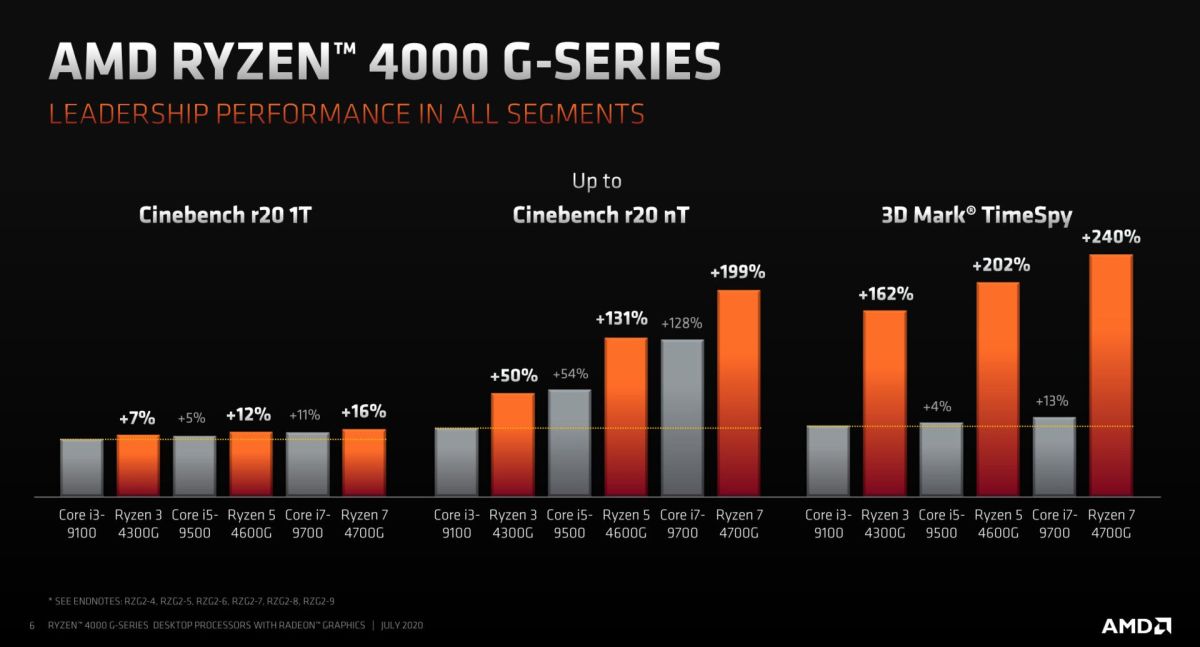In addition to the Ryzen 4000G series, AMD is also introducing the Ryzen PRO 4000G series. Naturally, both the Non-Pro and Pro series processors are compatible with AMD’s current generation B550 and X570 motherboards. But it should be noted that the PRO 4000G series processors will also support a new PRO565 chipset.
In total, both the Ryzen 4000G and Ryzen PRO 4000G APUs with six SKUs each. The list includes:
Ryzen 7 4700GRyzen 7 4700GERyzen 5 4600GRyzen 5 4600GERyzen 3 4300GRyzen 3 4300GERyzen 7 Pro 4700GRyzen 7 Pro 4750GERyzen 5 Pro 4650GRyzen 5 Pro 4650GERyzen 3 Pro 4350GRyzen 3 Pro 4350GE
As for their specs, the Ryzen 7 SKUs come with 8-cores, 16-threads, the Ryzen 5 SKUs with 6-cores, 12-threads, while the Ryzen 3 SKUs on both sides sport a 4-cores, 8-threads layout. On a related note, both the “G” and “GE” variants the new APU come with different power envelopes; all “G” units ship out with a TDP of 65W, while the “GE” versions of the APUs have a considerably smaller power consumption at 35W. Also, to state the obvious, all APU units are built upon AMD’s current 7nm Zen 2 architecture. Unfortunately, there is a catch to AMD’s new APUs; unlike the current range of Ryzen 3000 series CPUs, the new Ryzen 4000G series range of processors will only be made available to OEM integrators and unavailable for individual purchase by the general consumer.
As for their availability, AMD expects its new Ryzen 4000G series APUs to start being available in OEM systems of Dell, HP, and Lenovo as early as the third quarter of this year. The Ryzen PRO 4000G series will also be available in OEM systems around the same time. (Source: AMD via Videocardz, Anandtech)

